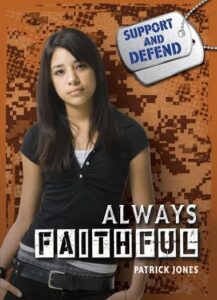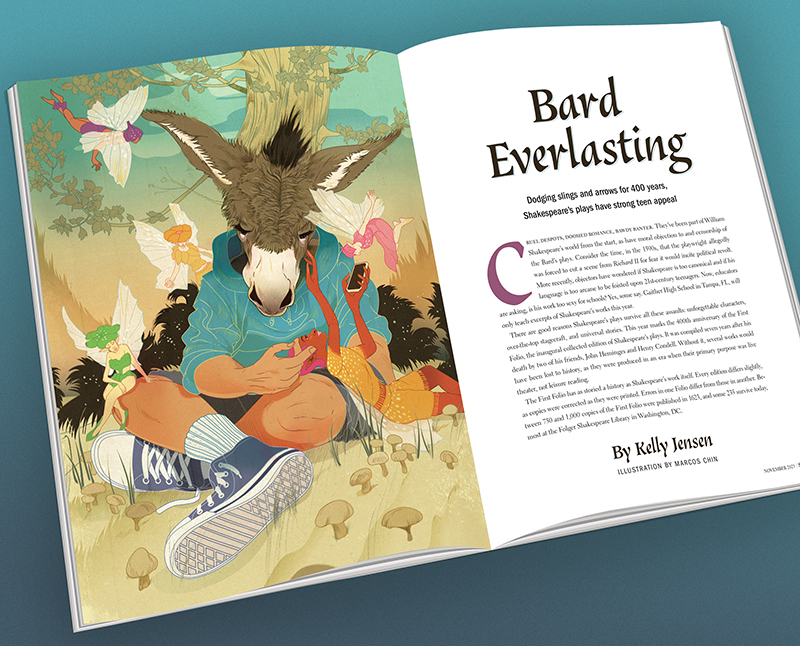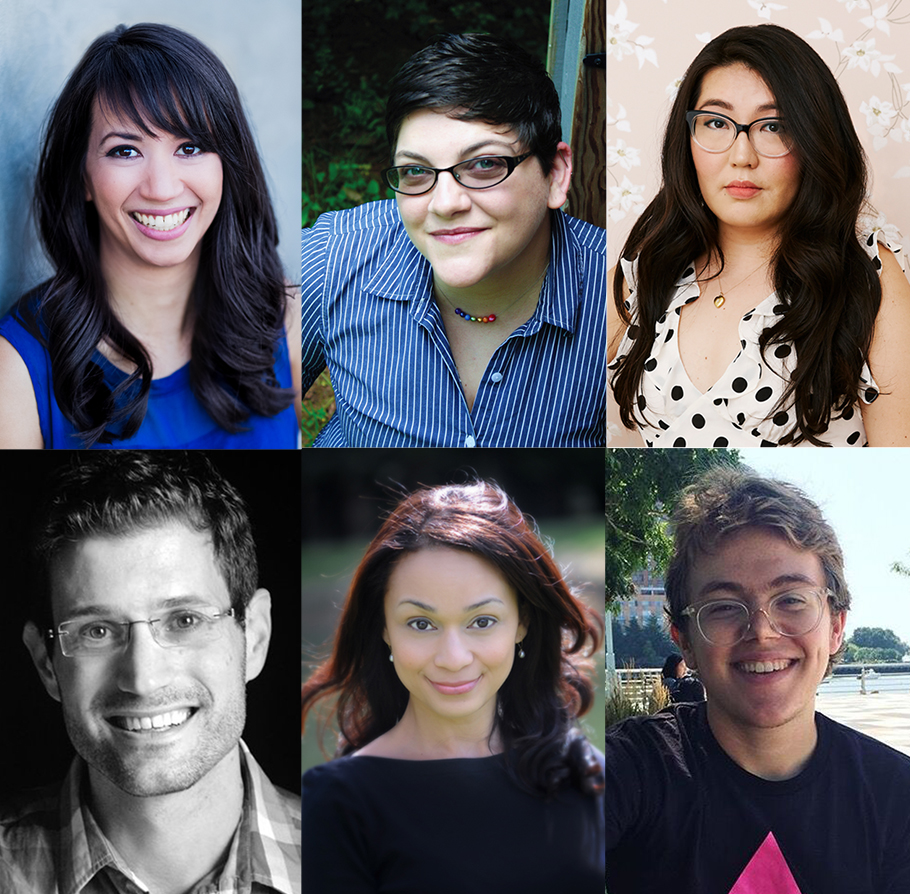An Interview with Patrick Jones by guest blogger Jessi Schulte-Honstad
Written by Jessi Schulte-Honstad, Young Adult Services Supervisor for Skokie Public Library, Skokie IL.
 In Patrick Jones’ current book series, Locked Out and Support and Defend he looks at the effects of losing a parent to the justice system and military service. Written specifically with reluctant readers in mind, Jones works hard to portray the lives of underrepresented youth in ways that are easily accessible and appealing to all readers. This is important stuff; with an estimated 2.7 million children in the United States who have an incarcerated parent, and 900,000 children who have at least one active duty or deployed parent, the issue of missing a parent in adolescence is a huge one.
In Patrick Jones’ current book series, Locked Out and Support and Defend he looks at the effects of losing a parent to the justice system and military service. Written specifically with reluctant readers in mind, Jones works hard to portray the lives of underrepresented youth in ways that are easily accessible and appealing to all readers. This is important stuff; with an estimated 2.7 million children in the United States who have an incarcerated parent, and 900,000 children who have at least one active duty or deployed parent, the issue of missing a parent in adolescence is a huge one.
Patrick and I go way back, we used to booktalk at county correctional facilities for incarcerated youth- some of the highlights of my library career! The kids in the juvenile detention system are eager for outside entertainment, and librarians are treated as celebrities presenting in front of a group of remarkably passionate readers. However, you couldn’t help but be haunted by the things you learned there, and challenged by the dearth of relatable material for them. Jones tackles these stories from firsthand experience; during his time as a librarian serving patrons in detention centers and speaking with military families, he has learned much about the effects that these kinds of losses have on teens- whose futures are on the line.
ADVERTISEMENT
ADVERTISEMENT
Xavier’s father is finally coming home from prison, after ten long years. The timing couldn’t be worse- he’s doing great on his baseball team and there is talk of him going pro someday. His Catholic school girlfriend Jennie is amazing. He’s squeaking by in his classes and excited for the future. When his father comes home, and starts back into the business that landed him in jail in the first place, tempers flare. Xavier has to control himself if he wants to succeed, but with his history, is that possible? Jones tells a heartbreaking tale of anger and resentment that rings all too true for the kids whose parents have been locked up. They are locked out.
Rosie has perfect grades, the perfect boyfriend, and in the years since her military father has come home, she has had a complete family that cares for her. But trouble brews between her father and brother, who is also home from the military. Her father doesn’t want to drift through life as the manager of a fast food chain or retail store, so instead he re-enlists and shakes Rosie’s perfect life apart. Seething with anger, Rosie sabotages herself in every way possible. She puts her own future at risk, because she can’t accept her father’s. A truthful portrayal of the bad choices we make when stressed and scared, Always Faithful is the story of one military family and the struggle to succeed when your parents choose to leave you behind.
How did your library career inform your work as writer?
Other than publishing in a pro wrestling newsletter when I was 8, my first “real” publishing was because of my library career, starting with an article in RQ magazine in 1986 through my last one (so far) in VOYA in 2009 (interview with Dave Cullen, author of Columbine.) So I learned first by writing articles, then professional books a great deal about the business of writing/working with editors, as well as gaining confidence. I never would’ve read a YA book if I hadn’t done YA work in a library. Many of the teen characters in my first six novels from Bloomsbury were inspired by teens I meet working in libraries, in particular while visiting school doing booktalks and other YA work. Also, and I’ll talk more about this later, the idea of youth involvement stems from my YA work. Simply, if I was working in a factory in Flint, I wouldn’t have written these books. Finally, being active in the YA professional world helps me understand what books kids want, don’t want, what is missing from the market and what stories are likely to succeed.
To begin with, I am one and except for a brief “spurt” in my 20’s when I didn’t have a TV, I’m a reluctant reader except about those topics which really interest me in non-fiction. So when there is a new pro wrestling biography, I will read it over the weekend. Or if I get fascinated with something, then I’ll read everything on that topic: but that is more reading for purpose than pleasure. When I booktalked, I did do lots of reading, but a great deal of that was on audio. Also I served on YALSA’s Quick Picks for four years and loved it, so it was very cool when my first novel Things Change made that list, and then later when all four titles from my first reluctant reader series (The Dojo) made the list as well. Finally, in my old day work I worked with kids in custody and so many of them were struggling readers for so many reasons, but in part because they didn’t see themselves in books and/or they’d failed so many times trying to read in past that they associated any book with failure. I wanted to write books that let these kids succeed.
I did my first series about Mixed Martial Arts because there wasn’t any YA novel out there about the topic, plus it contains a lot of scenes of people punching each other in the face, which seems a theme in my work. The Alternative comes from my great experiences first as a librarian then as an author visiting schools in this type of environment. Students in an alternative school had some major influence on that series. First I put together a list of 20 possible books and they voted what topics they were most interested in, and then small groups of students volunteered (though they did get extra credit and I bought them lunch) to read the books in manuscript. Mostly they said I got it right – both the experience of being in an alternative school but also some of their experiences being kids of color/in the minority. One of the books in that series (Target) was about parental incarceration, so that inspired along with the Strengthening. Families Affected by Incarceration project this new series Locked Out. Also many of the kids in custody and in alternative schools are more likely to have a parent who is/or has been locked up, so again, it was writing about topics for the audience that I want to appeal to: young men of color who need books they can succeed in reading.
How can you – a white guy – dare write in first person as an African American female?
I started a blog called Monday Night RAWing (Reading Advocating/Writing) and I just posted an interview with Paul Volponi and another with Paul Langan who writes Bluford High answering this very question. I also ask this question to writers of color, like Greg Neri, giving me their take. The female part I’ve done before in my Bloomsbury books, but writing about somewhat from a different ethnic background is challenging and I admit to bracing for the blows and there have been several. Like the one blog “review” that begins “Jones, who is white” while another told me I wasn’t aware of my white privilege. Thanks for the info. I was serving all these kids in corrections, 80% kids of color (I actually have a nonfiction book spring 2016 about the big changes in youth in custody, so while we’re locking up a lot less kids than ever before, the DMC disproportionate minority contact remains appalling) and so few books. I add an extra layer of protection in that I have kids of color at various alternative schools where I visit read the books in manuscript, but again, to bloggers that doesn’t matter because – it comes down to a core belief – I shouldn’t be writing a book in 1st person about a black girl in poverty. And of all the things wrong with that, the worst is this: you’re saying to Coe Booth, you can’t write about anyone BUT black kids in Brooklyn. Write, research, and respect, rinse, repeat.
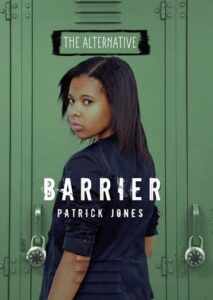 While you’re no longer the “YA guru” guy, what is your opinion of YA?
While you’re no longer the “YA guru” guy, what is your opinion of YA?
ADVERTISEMENT
ADVERTISEMENT
I mainly know what I see on YALSA-BK and the coolest things non technology-related are the growth of the Teen Book Festivals. I’ve done three this year, just recently one in the Twin Cities, and it is just amazing to see that many teens in one place excited about reading. Second, is the growth of programming around Cos Play: not what is not true of even most of these kids, I think, this attracts outsider kids (I have my outsider character in The Barrier attend a Manga convention.) Finally, I still see lots of YA librarian jobs posted, so it seems the field is doing fine with tons of great stuff coming from YALSA.
What do you think are some of the challenges facing young adults today and how do you think your books can help resolve them?
It is such a cliché but as connected as teens are via social media, I wonder if it all isn’t very anti-social. When I hear from teens, not as much as I used to since kids who read reluctant reader books are not the kind to reach out to authors, that’s the big theme: feeling alone. One of the other inspirations for the Locked Out series was a nonfiction title about children of incarcerated parents called All Alone in The World. In my soon to be published novel Clicked, the main character is in front of his computer on homecoming night and he comments about watching all these other people post – and to him brag – about how much fun they are having which makes him feel worse. But the main thing most of my books are about is second chances: kids in The Alternative go to Rondo because they’ve failed in a regular school. In Locked Out, these teens feel such a complex web of emotions and because of it most of them make mistakes. And I guess the big thing, like a teen who read Target, is he said something like “how do you know so much about me” because his Dad just went to prison and told me that I (pun intended) Nailed it. I have always said and probably wrote someplace, the best YA lit isn’t that which paints the prettiest pictures, but displays the best mirrors. I hope teens reading my books see themselves in the story and know they’re not alone in the world.
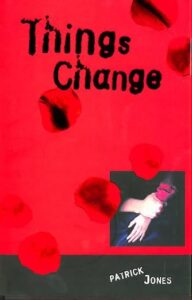 Do you hear from your readers much? What do they have to say?
Do you hear from your readers much? What do they have to say?
Not as much as before, as mentioned, and most of my interaction tends to be in small groups during school visits. One of my favorite things during school visits is to ask the teacher librarian to organize a lunch with the kids who want to be writers so we can talk craft. Also as mentioned, I hear from readers as I’m writing. A teen I met in Keller, TX, just finished reading three books in spring 2016 series and her comments were very helpful. For about five years after Things Change came out it was rare that a month would pass without an “I am Johanna” or “I think my friend needs to read this because her boyfriend is hitting her” email. That’s so powerful to know that something I’ve written sitting in my house or in a hotel airplane made a difference in people’s lives. With my reluctant reader fiction, I actually hear more from parents and teachers thanking me for writing something their child (always a son) actually enjoyed reading.
Other than collection, what other ways can libraries better serve your readers?
Three things: get every kid a library card. I wrote a whole book on this and I still believe it. And also waive fines from over x number of years. We got cards for kids getting out of custody and I’d say 75% hadn’t checked out a book in years because of fines when they are eight. Two, get out of the building: the teens who NEED libraries are, for the most part, not in libraries. I talked about this recently on a YALSA podcast, but it is not just teens in custody: it is teens in alternative schools, charter schools, homeless shelters, halfway houses, Boys Clubs, juvenile justice diversion programs: all these high risk kids libraries librarians could help but instead (major rant) we’re sitting at a reference desk like it was 1975 waiting for teens to come ask us questions. Finally, buy library materials these kids can read. My fear is again our collections over-represent the teens who USED to use libraries, not those we want to and need to get libraries in their lives. End rant.
Find Patrick Jones online on his website, blog (Monday Night RAWing), and Twitter.
Filed under: Uncategorized
About Amanda MacGregor
Amanda MacGregor works in an elementary library, loves dogs, and can be found on Twitter @CiteSomething.
ADVERTISEMENT
ADVERTISEMENT
SLJ Blog Network
The 2024 Ninja Report: Bleak
A Sequel Coming This Summer That You Won’t Want to Miss: Bob Shea Discusses His Latest
Review| Agents of S.U.I.T. 2
ADVERTISEMENT



